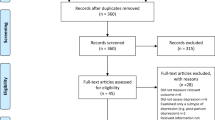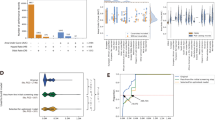Abstract
Approximately 10% of Japanese alcoholics develop their disease despite having an inactive form of aldehyde dehydrogenase-2 (ALDH2),1 known as a genetic deterrent of heavy drinking due to adverse reactions after drinking.2 Such alcoholics are considered to be advantageous in genetic research because they should show reduced heterogeneity and possess genetic factors conferring susceptibility to alcohol dependence. Examination of the −1438 A/G polymorphism of the serotonin 2A (5HT2A) receptor gene in 225 Japanese alcoholics with inactive ALDH2 revealed the presence of significantly more of the G allele than was found in 361 control subjects. The frequency of the G allele in 282 alcoholics with active ALDH2 fell between the G allele frequencies of controls and subjects with inactive ALDH2. These data suggest that although the effect is relatively small, genetic variability in the 5HT2A receptor is involved in the development of alcohol dependence.
This is a preview of subscription content, access via your institution
Access options
Subscribe to this journal
Receive 12 print issues and online access
$259.00 per year
only $21.58 per issue
Buy this article
- Purchase on Springer Link
- Instant access to full article PDF
Prices may be subject to local taxes which are calculated during checkout
Similar content being viewed by others
Author information
Authors and Affiliations
Corresponding author
Rights and permissions
About this article
Cite this article
Nakamura, T., Matsushita, S., Nishiguchi, N. et al. Association of a polymorphism of the 5HT2A receptor gene promoter region with alcohol dependence. Mol Psychiatry 4, 85–88 (1999). https://doi.org/10.1038/sj.mp.4000474
Received:
Revised:
Accepted:
Published:
Issue Date:
DOI: https://doi.org/10.1038/sj.mp.4000474
Keywords
This article is cited by
-
Association of the HTR2A gene with alcohol and heroin abuse
Human Genetics (2014)
-
Peter Riederer “70th birthday” Neurobiological foundations of modern addiction treatment
Journal of Neural Transmission (2013)
-
Family-Based Association Analysis of Serotonin Genes in Pathological Gambling Disorder: Evidence of Vulnerability Risk in the 5HT-2A Receptor Gene
Journal of Molecular Neuroscience (2013)
-
Strong protective effect of the aldehyde dehydrogenase gene (ALDH2) 504lys (*2) allele against alcoholism and alcohol-induced medical diseases in Asians
Human Genetics (2012)
-
Genetics of developmental dyslexia
European Child & Adolescent Psychiatry (2010)



